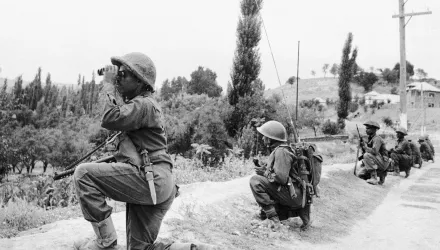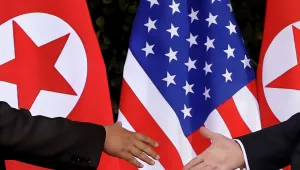The attached monograph by Dr. Edward Walker was commissioned by the Strengthening Democratic Institutions Project as part of its 1996-1997 seminar series on the "Caucasus and the Caspian" at the Kennedy School of Government''s Belfer Center for Science and International Affairs.
The series was convened as a follow-up to the Project's 1995 report on conflict in the North Caucasus region: Russia's Tinderbox: Conflict in the North Caucasus and its Implications for the Future of the Russian Federation. The purpose of the seminars is to explore broader strategic issues in the Caucasus and the Caspian basin, including: oil and pipeline politics in the Caspian; the war in Chechnya; the ongoing conflicts in Georgia, Nagorno-Karabakh, and North Ossetia-Ingushetia; the role of the Russian military; Russia's relations with Turkey, Iran and other regional powers; and increasing U.S. engagement in the region.
This monograph offers a current analysis of the three most important secessionist conflicts in the Caucasus: Chechnya, Abkhazia and Nagorno-Karabakh. In Chechnya, after the outbreak of war in 1994, the ferocious resistance of the Chechens, the collapse of the Russian military, and a popular backlash in Moscow against the war resulted in a tentative peace treaty in August 1996. Since then, neither Russia nor Chechnya has been able to find a creative middle ground that can reconcile the Chechen desire for independence with Russian fears of a "domino effect" and the rupture of the territorial integrity of the Russian Federation. In Nagorno-Karabakh, a cease-fire has held since May 1994. Both Armenia and Azerbaijan have gradually been moved toward a compromise solution by the OSCE, but the Karabakh Armenians are holding out for the ultimate ruling of the political status of the territory. In February 1998, just after Dr. Walker completed his paper, domestic disagreement in Armenia over prospect of a compromise solution for Nagorno-Karabakh resulted in the resignation of President Levon Ter-Petrossian. In Georgia, civil war and military collapse forced Tbilisi to end its assault on Abkhazia in 1993, but neither Moscow nor a United Nations mission has since been able to bring the two sides together. In their state of "no peace, no war," the three conflicts continue to pose the most serious obstacle to the long-term stability and development of the Caucasus region.
Dr. Edward Walker is the Executive Director of the Program in Soviet and Post-Soviet Studies at UC Berkeley and one of the leading U.S. scholars on the Caucasus. He is currently on leave as a National Fellow at the Hoover Institution, Stanford University, where he is writing a book on secessionist movements and autonomy arrangements in the former Soviet Union, with case studies on Chechnya, Nagorno-Karabakh, Tatarstan, Abkhazia, Crimea and Transdniester. In addition to the Caucasus, his previous research has focused on constitutionalism, federalism, and center-periphery relations in Russia. Dr. Walker received his Ph.D. in Political Science from Columbia University in 1993, and has a Masters from the School for Advanced International Studies at Johns Hopkins and a B.A. from Harvard.
Walker, Edward. “No Peace, No War in the Caucasus: Secessionist Conflicts in Chechnya, Abkhazia and Nagorno-Karabakh.” Strengthening Democratic Institutions Project, Belfer Center, February 1998


